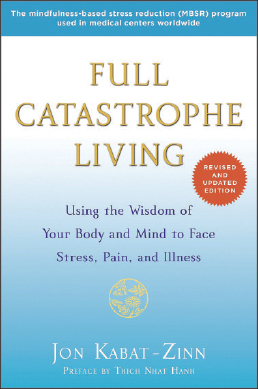GUEST EDITOR

Jun J. Mao, MD, MSCE
Integrative Oncology is guest edited by Jun J. Mao, MD, MSCE, Laurance S. Rockefeller Chair in Integrative Medicine and Chief of Integrative Medicine Service at Memorial Sloan Kettering Cancer Center, New York.
The ASCO Post’s Integrative Oncology series is intended to facilitate the availability of evidence-based information on integrative and complementary therapies sometimes used by patients with cancer. Accumulating evidence supports the value of mindfulness meditation for improving psychological, physiologic, and emotional well-being in patients with cancer. In this installment, Dr. Victorson summarizes findings from his research on the effects of mindfulness training on anxiety and uncertainty—two common adverse psychological responses—in men diagnosed with prostate cancer who are on active surveillance.
Among cancers affecting men, prostate cancer is the most common noncutaneous type and the second leading cause of cancer death in the United States.1 Prostate cancer and its treatment can significantly affect a person’s health-related quality of life, encompassing physical, functional, social, and emotional domains.2

David Victorson, PhD
Due to increased screening efforts, nearly half of all men who are diagnosed with prostate cancer fall into a very low–risk category,3 a majority of whom are encouraged to consider forgoing definitive treatments such as surgery or radiation therapy and to instead manage their disease with the more conservative approach of active surveillance.4 This option involves regular monitoring of disease status through prostate-specific antigen (PSA) tests and annual biopsies, and it is intended to help prevent invasive treatments unless cancer progression occurs, at which time curative intent is generally undertaken. Although men on active surveillance are able to avoid common physical treatment side effects from surgery or radiation therapy such as urinary incontinence or sexual impotence, many experience normal psychological sequelae, such as uncertainty, worry, rumination, anxiety, and fear of cancer progression.5,6
Active Surveillance–Related Anxiety and Worry
Feelings of anxiety and uncertainty have been reported as two of the most common psychological reactions for men on active surveillance.6 One study found heightened anxiety in men on active surveillance after screening visits or PSA follow-up, which decreased significantly once the men were informed that their results were “normal.”7 This is particularly relevant for men on active surveillance, since they must undergo tests every 3 to 6 months and are continually confronted with treatment-related decisions.
Because mindfulness training is a low-cost, low-risk approach, and due to the growing evidence base supporting its utility for improving health‑related quality of life, many cancer treatment centers are offering it.— David Victorson, PhD
Tweet this quote
Another study reported that, for men on active surveillance, increases in anxiety were associated with their decision to pursue more active types of treatment. These findings persisted even after controlling for sociodemographic and clinical characteristics as well as disease progression status.8 In conjunction with anxiety, men on active surveillance report experiencing greater uncertainty with the reality that this approach ultimately may not work and that the disease could worsen.9,10
Mindfulness Meditation and Active Surveillance
Over the past several decades, research has demonstrated that adopting the regular practice of mindfulness meditation may help to regulate disease-related symptoms; enhance treatment regimens; achieve psychological, physiologic, and emotional well-being; and improve health-related quality of life in a variety of patient populations.11,12 Rooted in contemplative traditions, mindfulness facilitates the cultivation of nonjudgmental and acceptance-based moment-to-moment awareness through a process of sustained attention and attentional shifting, which may foster the inhibition of secondary elaborative cognitive processing.13 When it comes to coping with uncertainty-based challenges, such as purposefully not treating a cancerous tumor found in the body with definitive methods, we hypothesized that learning mindfulness-based self-regulation skills may help patients to “sit with” and tolerate this uncertainty, leading to improved health-related quality of life and even treatment-adherent behaviors.
Mindfulness Training During Active Surveillance
Our research team conducted the first pilot randomized clinical trial of mindfulness training among men diagnosed with prostate cancer on active surveillance (n = 39) to verify the feasibility, acceptance, and clinical benefit of such training in this population.14 Over a 2-year period, we approached 115 men, 54 of whom were randomly included in the study. However, between consent and the start of the intervention, this number decreased to 39 men who were randomly assigned to either mindfulness-based stress reduction (n = 23) or low-dose attention control (n = 18); all of the patients received the book Full Catastrophe Living: Using the Wisdom of Your Body and Mind to Face Stress, Pain, and Illness, upon which mindfulness-based stress reduction is based.15 However, participants were given no guidance or expectations on whether to read it or not. Primary reasons for initial refusal to participate in the study included distance and lack of time. Reasons cited for dropout after consent were surgery and lack of time.

PHOTO: GETTY IMAGES
Our initial analyses on outcomes of prostate cancer anxiety found no significant differences between enrollees and those who declined to enroll, nor were there any significant differences between mindfulness-based stress reduction (n = 21) and control (n = 18) groups on baseline measures of uncertainty intolerance, rumination, prostate cancer anxiety, fear of recurrence, global health-related quality of life, mindfulness, or post-traumatic growth. In our planned time by intervention group analysis, we did not find a statistically significant difference between groups in favor of mindfulness-based stress reduction in prostate cancer anxiety, uncertainly, or fear of disease progression.
The only outcome demonstrating a statistically significant change over time was post-traumatic growth (P = .01), which significantly improved (with moderate to large effects) in the mindfulness-based stress reduction group at 8 weeks (P < .01; effect size = 0.43), 6 months (P < .05; effect size = 0.41), and 12 months (P < .01; effect size = 0.72). The mindfulness-based stress reduction group at 8 weeks (P < .01; effect size = 0.43) also showed statistically significant within group improvements over time in prostate cancer anxiety (P < .05; effect size = 0.30), uncertainty intolerance (P < .01; effect size = 0.47), and global mental health (P < .05; effect size = 1.8), but these findings may be attributed to other factors.

Recommendations and Next Steps
Although these preliminary findings are thought-provoking, the limitations of our study include a small sample size, geographic homogeneity, and lack of a more robust time- and attention-matched control condition. Subsequently, the National Cancer Institute has funded our research team to conduct a 6-year multisite trial of mindfulness-based stress reduction group at 8 weeks (P < .01; effect size = 0.43; ClinicalTrials.gov identifier NCT02871752) to more rigorously determine its effects on decreasing fear of cancer progression and uncertainty in men with prostate cancer on active surveillance. Because mindfulness training is a low-cost, low-risk approach, and due to the growing evidence base supporting its utility for improving health-related quality of life, many cancer treatment centers are offering it.
In closing, referring men on active surveillance to this training is recommended as a potential means of coping and emotion-regulation support. ■
Dr. Victorson is Associate Professor of Medical Social Sciences, Northwestern University Feinberg School of Medicine, and Director of Integrative Oncology, Robert H. Lurie Comprehensive Cancer Center’s Survivorship Institute, Chicago.
DISCLOSURE: Dr. Victorson reported no conflicts of interest.
REFERENCES
1. American Cancer Society: Cancer Facts & Figures 2019. Available at https://www.cancer.org/content/dam/cancer-org/research/cancer-facts-and-statistics/annual-cancer-facts-and-figures/2019/cancer-facts-and-figures-2019.pdf. Accessed September 23, 2019.
2. Lardas M, Liew M, van den Bergh RC, et al: Quality of life outcomes after primary treatment for clinically localised prostate cancer: A systematic review. Eur Urol 72:869-885, 2017.
3. Ganz PA, Barry JM, Burke W, et al: NIH state-of-the-science conference statement: Role of active surveillance in the management of men with localized prostate cancer. NIH Consens State Sci Statements 28:1-27, 2011.
4. Mahal BA, Butler S, Franco I, et al: Use of active surveillance or watchful waiting for low-risk prostate cancer and management trends across risk groups in the United States, 2010-2015. JAMA 321:704-706, 2019.
5. Bergman J, Litwin MS: Quality of life in men undergoing active surveillance for localized prostate cancer. J Natl Cancer Inst Monogr 2012:242-249, 2012.
6. Kazer MW, Psutka SP, Latini DM, et al: Psychosocial aspects of active surveillance. Curr Opin Urol 23:273-277, 2013.
7. Dale W, Bilir P, Han M, et al: The role of anxiety in prostate carcinoma: A structured review of the literature. Cancer 104:467-478, 2005.
8. Latini DM, Hart SL, Knight SJ, et al: The relationship between anxiety and time to treatment for patients with prostate cancer on surveillance. J Urol 178:826-831, 2007.
9. Oliffe JL, Davison BJ, Pickles T, et al: The self-management of uncertainty among men undertaking active surveillance for low-risk prostate cancer. Qual Health Res 19:432-443, 2009.
10. Pickles T, Ruether JD, Weir L, et al: Psychosocial barriers to active surveillance for the management of early prostate cancer and a strategy for increased acceptance. BJU Int 100:544-551, 2007.
11. Carlson LE, Ursuliak Z, Goodey E, et al: The effects of a mindfulness meditation-based stress reduction program on mood and symptoms of stress in cancer outpatients: Six-month follow-up. Support Care Cancer 9:112-123, 2001.
12. Astin JA: Stress reduction through mindfulness meditation: Effects on psychological symptomatology, sense of control, and spiritual experiences. Psychother Psychosom 66:97-106, 1997.
13. Bishop SR, Lau M, Shapiro S, et al: Mindfulness: A proposed operational definition. Clinical Psychology: Science and Practice 11:230-241, 2006.
14. Victorson D, Hankin V, Burns J, et al: Feasibility, acceptability, and preliminary psychological benefits of mindfulness meditation training in a sample of men diagnosed with prostate cancer on active surveillance: Results from a randomized controlled pilot trial. Psychooncology 26:1155-1163, 2017.
15. Kabat-Zinn J: Full Catastrophe Living: Using the Wisdom of Your Body and Mind to Face Stress, Pain, and Illness. New York; Bantam; 2013.

